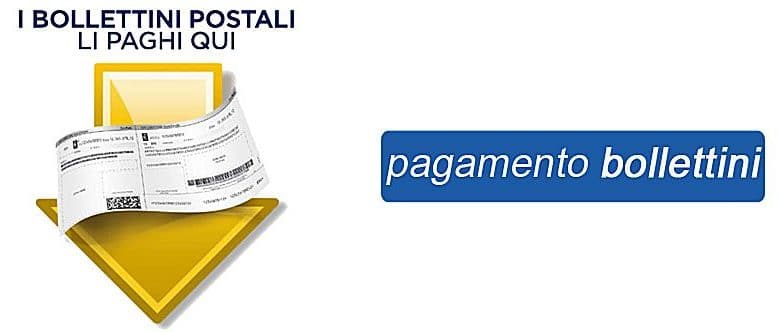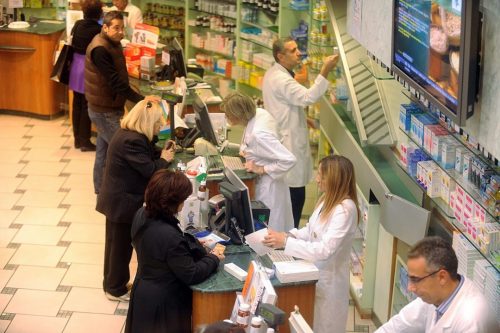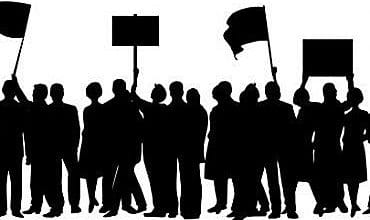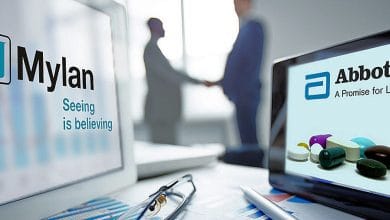
The blurb was almost hidden in the inside pages of the newspaper I was reading. A few lines announcing a real revolution in services, especially for the elderly. It was written: "The pharmacy in Italy is a candidate to broaden the range of services to the citizen ... Pharmacists are preparing for a new initiative: to have postal payment slips paid directly with the POS at the counter".
 The last time I was at the post office in my city, at a secondary office, I waited over an hour to send a registered letter. The time before, more or less three quarters of an hour just to collect one "cursed" – for me it is understood – fine for trespassing in the preferential lane. And in those hours spent in the post office I could not, even if I wanted to, distance myself from so much suffering and elderly humanity, which was waiting its turn to withdraw the little money from the old age pension. Or standing in endless queues to pay the gas or electricity bill via postal payment slip, due to the beyond measure concern that even the slightest delay in payment could lead to possible cuts in the supply of these two vital goods. For those who are alone at home and can't count on friends and relatives, small things of ordinary administration become almost insurmountable problems. Anything that can help the weakest subjects of society not to waste precious time and, above all, to be subjected to unnecessary stress, is therefore welcome.
The last time I was at the post office in my city, at a secondary office, I waited over an hour to send a registered letter. The time before, more or less three quarters of an hour just to collect one "cursed" – for me it is understood – fine for trespassing in the preferential lane. And in those hours spent in the post office I could not, even if I wanted to, distance myself from so much suffering and elderly humanity, which was waiting its turn to withdraw the little money from the old age pension. Or standing in endless queues to pay the gas or electricity bill via postal payment slip, due to the beyond measure concern that even the slightest delay in payment could lead to possible cuts in the supply of these two vital goods. For those who are alone at home and can't count on friends and relatives, small things of ordinary administration become almost insurmountable problems. Anything that can help the weakest subjects of society not to waste precious time and, above all, to be subjected to unnecessary stress, is therefore welcome.
The older you get, the more often you have to deal with it "pharmacy". You used to go there a few times a year. Then, more and more often, almost once a week. The years go by and the drugs to feel good increase.
The "pharmacist", whether female or male, becomes a trusted friend who is often more available than the health insurance doctor: he explains, advises, insists on encouraging the reluctant patient to take that drug. Of course, he is no longer what he used to be preparing ad hoc potions that the family doctor prescribed. However, he remained a valuable consultant, even if his shop was transformed. Not just medicines, but a little bit of everything. From women's stockings that solve certain vein problems, to the whole imaginable range of products for children. And then there are the soaps, shampoos with herbs or extra virgin olive oil, etc. etc.
More than a pharmacist, as the generation that passed him knew him "door", it's a "shopkeeper-consultant of articles for the well-being of the person". The skills of the "pharmacist" he must have them all, but they are not enough. It also takes a "quid" for knowing how to sell; for knowing how to offer customers, between one medicine and another, a product that may interest them.
L to my friend Maria, a pharmacist for generations, where I increasingly find myself buying pharmaceutical products – but also, among other things, excellent quality shampoos at competitive prices – I think she won't agree too much with the further trespassing of his professional duties. Already today she complains about too much work, about the many duties that come from an activity that has been distorted over time. All we needed was the payment of the postal bills and then the already complex picture becomes unbearable.
to my friend Maria, a pharmacist for generations, where I increasingly find myself buying pharmaceutical products – but also, among other things, excellent quality shampoos at competitive prices – I think she won't agree too much with the further trespassing of his professional duties. Already today she complains about too much work, about the many duties that come from an activity that has been distorted over time. All we needed was the payment of the postal bills and then the already complex picture becomes unbearable.
For the elderly, on the other hand, the grueling queues at the post office to pay, among other things, for electricity and gas would disappear. Together with the doctor's prescription for the usual medicines there would also be the postal order and, in all likelihood, the request for explanations for consumption deemed high or for fines considered unjust or, again, for many other issues. A real deal for the user. A problem, certainly, for the pharmacist.
If it is true as it is true that the future will always be more "elderly", then ad hoc services must be identified for the age which, fortunately, is advancing. And it is certain that the "pharmacist" he is one of those subjects who, due to his main function, will be able to make a great contribution in this sense. But without distorting its functions. Rather than assigning him other duties far from his professional point of view, ad hoc agreements with the patronages could be envisaged. For example, in municipal pharmacies, but not only, there could be a patronage desk that offers a whole series of additional services: including postal slips. In this sense, the law 152/2001 which bears the title of "New discipline for patronage and social assistance institutes".
Elia Fiorillo – 02/11/2016 – The Vesuvius Gazzettino
Related news: Payment of postal payment slips in the pharmacy, the "no" of Federfarma Palermo
Muschietti (Farmacieunite): "Harmful proposals from those who only seek electoral visibility"
Pharmacy 4.0. Pay for gas or electricity at the pharmacy





